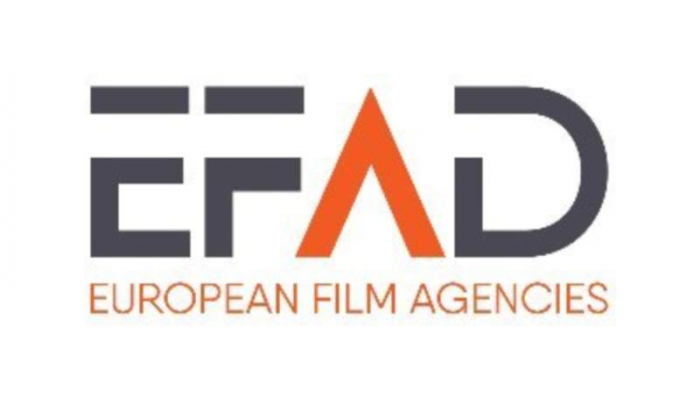Chris Marcich joins EFAD Board


EFAD members met at their virtual General Assembly on 21 September and elected a new Board of the Association for the next three years. Eleven new members were elected unanimously, and one of them is Croatian Audiovisual Centre CEO Chris Marcich.
As they have done several times over the past six months EFAD members continued to discuss the best ways to support the audiovisual sector during the crisis and build the best conditions for its recovery (see collection of film fund measures here).
They discussed the common challenges and issues faced by the sector and the need for both regulatory and funding measures at a national and European level. Members concluded it is imperative to develop recommendations to help our audiovisual industry become more resilient and better equipped to seize opportunities - especially at a time when the global landscape of the audiovisual sector is changing. This work will be guided by the objectives of enhancing cultural diversity and supporting the independence of the European audiovisual sector and will be underpinned by the principles set out in EFAD's strategic statemen (Vision Paper) published in February 2020.
"This way we will work even harder to achieve our goals at European level. The challenges are great, and it is up to us to ensure the future of the sector. It's not just a question of financial resources but also of the legislative framework we all have to follow. The special needs and interests of the smaller Member States are our priority," said on the occasion Croatian Audiovisual Centre CEO Chris Marcich.
The newly elected Board will elect the EFAD President and Vice-President in the coming weeks. The complete list of new Board members is available here.
At national level, Board members expressed gratitude to their governments for having confirmed and reinforced the key role of public funds as vital safety nets for the sector, helping to mitigate the effect of the crisis.
At a European level, EFAD members are calling on the EU institutions to make sure that the historic EU recovery package (Next Generation EU) will concretely benefit the audiovisual sector, in particular with an earmarked budget and clear guidance as to how the audiovisual sector can benefit from it in the different Member States. The MEDIA programme should be strengthened with a budget doubled, necessary for supporting European co-productions and their circulation on all platforms. More clarity is also needed about how the other EU funded programmes (Horizon Europe, Digital Europe, Structural funds…) can in practice contribute to a vibrant audiovisual sector.
Overall, the need for European collaboration in the film and audiovisual sectors is greater than ever. In particular, with the help of a supportive policy environment European independent production companies and creators have the opportunity to capitalise upon the opportunities opened up by the rapidly increasing audience appetite across the world for works shown on streaming services.
Two days after the deadline of the revised AVMS Directive, EFAD members also underlined the need for a swift and ambitious transposition of the text in the Member States as well as its long-term effective implementation on the ground. The crisis has revealed that it has never been more urgent to seize the opportunities of the Directive to enable online services to contribute both to the financing and promotion of European works. EFAD members took good note of the fact that the majority of Member States will implement levies and/or investment obligations for VoD services to create a level playing field and contribute to a vibrant independent European production scene.
The responsibility lies indeed within Member States to introduce rules and requirements that will benefit European independent productions, while the European Commission can continue to play an active role in facilitating the Directive’s smooth implementation via precise monitoring and reporting activities, a stronger administrative cooperation between regulators and film funds and drawing on supporting instruments such as online directory of European films available in the EU Lumiere VoD (for calculating the respect of the 30% VoD quota, and the qualification of European works).
EFAD members called on particular Member States that are playing the strategic role of “countries of origin” - and thus setting the rules that are applicable in other EU countries - to be as ambitious and concrete as possible when it comes to defining the prominence and quota obligations in their national laws. These rules are key to ensure the visibility of a wide diversity of European works and attract an ever larger audience.
You can find more information on the EFAD official site.
Cover photos: Chris Marcich (photo by: Sanjin Kaštelan); EFAD logo
